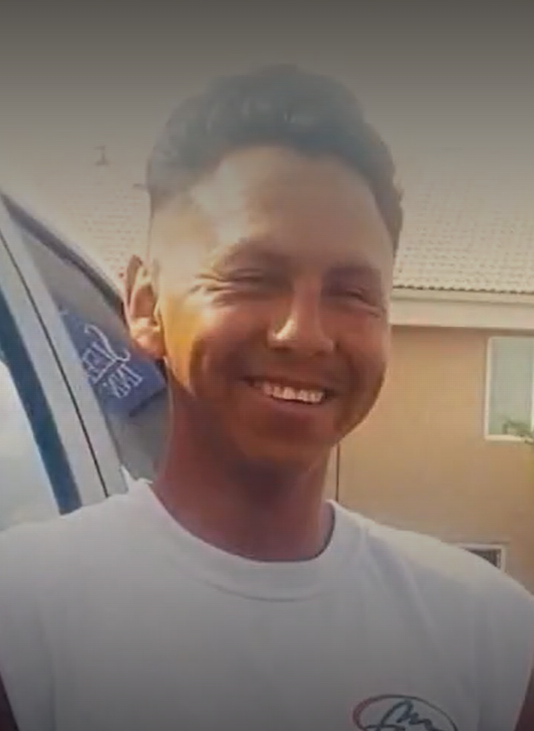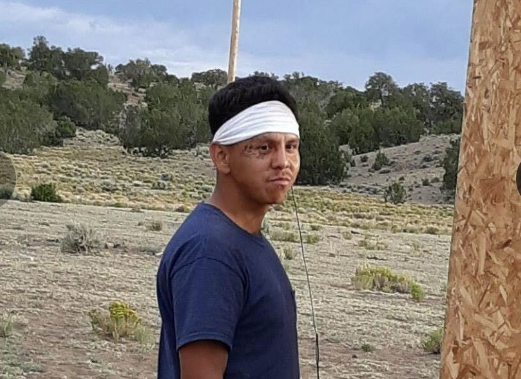Sober living crisis caused Navajo men's deaths, lawsuits against Arizona say
Two recent wrongful death lawsuits accuse the state of Arizona of negligence, mismanagement and a lack of oversight in failing to stop Medicaid fraud schemes that preyed on Indigenous people.
As of April 3, none of the defendants in either case had filed written responses, court documents show. Both cases were filed in Maricopa County Superior Court in March. The lawsuits do not name a specific dollar amount they are seeking.
Two state agencies are named as defendants in the lawsuits − the Arizona Health Care Cost Containment System, which is the state's Medicaid agency, and the Arizona Department of Health Services. When asked about the lawsuits, officials with both agencies this week said that they do not comment on pending litigation.
Lawyers with the Phoenix-based Brewerwood law firm say they anticipate filing more legal actions against Arizona in connection with the Medicaid fraud, which is estimated to have fleeced taxpayers of up to $2.5 billion over a period of approximately four years between 2019 and 2023. The Arizona Republic on March 27 made a records request with the state to see any copies of notices of claim, considered to be precursors to lawsuits, filed since Jan. 1, but as of April 3 had not received a response.
Lawyers John Brewer and Dane Wood write in their lawsuits that the state could have acted earlier to prevent both the Medicaid fraud and the deaths of Indigenous people and that "to this day, only selective facts have been publicly revealed by the state."
Investigators and state leaders announced the fraud schemes during a multi-agency news conference May 16 and, at that time, Arizona Attorney General Kris Mayes characterized what had occurred as a "stunning failure of government."
Investigators have said "bad actors" preyed on Indigenous people, sometimes enticing them into white vans with promises of addiction treatment, then holding them in unlicensed living situations in metro Phoenix against their will with no cellphones, no way to contact their families and no one to help them get well.
The fraudsters made money by using the people they'd lured as currency, investigators with the Arizona Attorney General's Office have said. They'd link up with providers, typically licensed outpatient behavioral health centers, and often didn't provide care to the patients, or significantly overbilled for the services that were provided. In some instances, the bad actors provided the people they were brokering with drugs and alcohol, investigators have said.
The scam is widely known as Arizona's "sober living crisis" or "sober living scandal," which is somewhat misleading, since sober living homes don't bill Medicaid, and the crisis was about Medicaid billing fraud.
But sober living homes − places for people to live while they are in recovery from substance use disorder − were central to the schemes set up by many of the fraudsters. That's because of the "assets" that both licensed and unlicensed sober living homes offered in the form of patients to operators that linked up with outpatient behavioral health clinics to file phony billing claims, investigators have said.
Fernando Largo, 32, died of an overdose in a Mesa motel room
Among other problems, Arizona's Medicaid agency did not properly vet the outpatient treatment facilities that it was directly paying through its fee-for-service American Indian Health Program, according to a wrongful death lawsuit filed by the family of Fernando Largo, a 32-year-old Navajo tribal member from New Mexico.

Mesa police found Largo dead of an overdose on March 7, 2023, inside a motel room that was registered to a Mesa outpatient behavioral health provider called Opportunity Changes, according to the lawsuit, filed in Maricopa County Superior Court.
Opportunity Changes, which is not on the list of nearly 300 Arizona Medicaid providers that have been suspended for credible allegations of fraud in connection with the schemes, is named as a defendant in the case.
The lawsuit says that one day before he died, Largo went through intake with Opportunity Changes, which then placed and registered him in the Mesa motel, even though as an outpatient behavioral health center, Opportunity Changes was only licensed to provide counseling and other behavioral health services at its facility, not at the motel. Opportunity Changes is not licensed as a sober living home, state licensing records show.
Opportunity Changes does have an active license as an outpatient treatment center, online records show, though a health department investigator who tried to conduct an unannounced inspection of the facility on Jan. 10 wrote in a report that no one was in the center that day, the door was locked, the lights were off and no one answered the phone.

The investigator then called the facility's emergency contact on file, and no one answered. The health department employee left a voicemail, but more than four hours later had not received a response.
When an Arizona Republic reporter on April 2 visited the Mesa address that Opportunity Changes has listed with the state − 460 N. Mesa Drive, Suite 120 − no one answered the door, which was locked. The blinds of the small clinic were closed, and there was a notice on the door from UPS of a failed delivery attempt. Calls to the publicly listed number for the clinic went unanswered.
An Arizona Republic reporter on April 2 called the number for Opportunity Changes listed in state records − a number with a western Maryland area code − and asked to speak with someone from Opportunity Changes. The person who answered asked who was calling and after the reporter identified herself, the person who answered the phone told the reporter she had the wrong number and hung up.
Police found Carson Carl Leslie, 44, dead in the middle of a street
The other wrongful death case was filed on behalf of the family of 44-year-old Carson Carl Leslie, a member of the Navajo Nation who was found dead of acute and chronic alcohol intoxication in the middle of a residential West Valley street on Sept. 28, 2022.
Leslie had been picked up in Flagstaff earlier that day by two people who reportedly said they worked for a provider named Victory Group Home, the lawsuit says. The lawsuit says that Leslie was a "vulnerable Native American man who was falsely lured, preyed upon and misled into the promise of substance abuse treatment."
According to the lawyers, Victory Group Home was in joint business operations with another business owned by Square Rentals and Western Square Rentals, which are "one and the same and the alter ego of each other." The lawsuit says Western Square Rentals was formed "for the very purpose of attempting to circumvent liability, create name/ownership confusion and to perpetrate a fraud upon the public."
Phoenix police found Leslie dead on West Glenrosa Avenue inside a gated community called Western Enclave, according to the lawsuit. The lawsuit names a Western Enclave property at 9319 W. Glenrosa Ave. as a place that was being used for "business operations and purposes," including but not limited to a sober living home, behavioral health center or "other similar establishments," the lawsuit says.
State records show that at one time the property at 9319 W. Glenrosa Ave. operated as a residential behavioral health facility called Oasis Home Care that was licensed by the Arizona Department of Health Services. State records say the facility closed Dec. 1.
Darlene Irakoze, listed as the statutory agent for Oasis Home Care in Arizona Corporation Commission records, is named as a defendant in the lawsuit over Leslie's death. According to the lawsuit, Irakoze drove the car that picked up Leslie and along with another person, "deposited Mr. Leslie's body into the street where he was found by Phoenix police." Efforts to reach Irakoze on April 3 were unsuccessful.
The lawsuit also names Victory Group Home, Victory Group Home #2, Square Rentals and Western Square Rentals as defendants. Chandler resident Akhil Goyal, listed in state documents as the statutory agent for Western Square Rentals, told the Republic that while he owns the property at 9319 W. Glenrosa Ave., he is "only a landlord who rents out the premises."
Records with the Arizona Department of Health Services say that Victory Group Home #2 is currently licensed as an adult residential behavioral health facility and is located at 9162 W. Sells Drive, which is in Western Enclave.
None of the provider entities listed as defendants in the lawsuit, including Victory Group Home #2, is named on a list maintained by AHCCCS of providers who have been suspended due to "credible allegations of fraud." About 300 AHCCCS providers are on the list because of allegations connected with the massive Medicaid fraud schemes.
Evelyne Dusabe, listed in state records as the statutory agent for Victory Group Home and Victory Group Home #2, told the Republic on April 2 that she didn't know anything about a lawsuit but that the case concerning Carson Carl Leslie's death is "closed" because he died before he was admitted to any facility.
Western Enclave, where Leslie was found dead, has reported problems stemming from a proliferation of sober living homes, group homes and group housing situations dating to 2020, when community resident Lorena Gutierrez created a block watch specifically to monitor problems with them. The occupants of the homes almost always appeared to be Native American and were often observed passed out in parks and on porches in the neighborhood, she said.
"To me, these were victims, no question about it," Gutierrez said, referring to occupants of the homes. "They obviously had a problem, and that problem, trust me, was not being addressed."
Reach health-care reporter Stephanie Innes at stephanie.innes@gannett.com or at 480-313-3775. Follow her on X, formerly known as Twitter, @stephanieinnes.
This article originally appeared on Arizona Republic: Medicaid fraud caused Navajo men's deaths, lawsuits against AZ say
